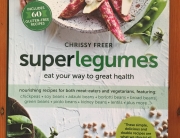 Fish oils:
Fish oils:
Contain omega-3 fatty acids. Research has shown that depressed people often lack a fatty acid known as EPA. Participants in a 2002 study featured in the Archives of General Psychiatry took just a gram of fish oil each day and noticed a 50-percent decrease in symptoms such as anxiety, sleep disorders, unexplained feelings of sadness, suicidal thoughts, and decreased sex drive. Omega-3 fatty acids can also lower cholesterol and improve cardiovascular health. Get omega-3s through walnuts, flaxseed and oily fish like salmon or tuna.
Brown Rice:
Contains vitamins B1 and B3, and folic acid. Brown rice is also a low-Glycemic food, which means it releases glucose into the bloodstream gradually, preventing sugar lows and mood swings. Brown rice also provides many of the trace minerals we need to function properly, as well as being a high-fibre food that can keep the digestive system healthy and lower cholesterol. Instant varieties of rice do not offer these benefits. Any time you see “instant” on a food label, avoid it.
Brewer’s Yeast:
Contains vitamins B1, B2 and B3. Brewer’s yeast should be avoided if you do not tolerate yeast well, but if you do, mix a thimbleful into any smoothie for your daily dose. This super food packs a wide assortment of vitamins and minerals in a small package, including 16 amino acids and 14 minerals. Amino acids are vital for the nervous system, which makes brewer’s yeast a no-brainer for treating depression.
Whole-grain oats:
Contain folic acid, pantothenic acid and vitamins B6 and B1. Oats help lower cholesterol, are soothing to the digestive tract and help avoid the blood sugar crash-and-burn that can lead to crabbiness and mood swings. Other whole grains such as kamut, spelt and quinoa are also excellent choices for delivering brain-boosting nutrients and avoiding the pitfalls of refined grains such as white flour.
Cabbage:
Contains vitamin C and folic acid. Cabbage protects against stress, infection and heart disease, as well as many types of cancers, according to the American Association for Cancer Research. There are numerous ways to get cabbage into your diet; toss it in a salad instead of lettuce, use cabbage in place of lettuce wraps, stir fry it in your favourite Asian dish, make some classic cabbage soup or juice it. To avoid gas after eating cabbage, add a few fennel, caraway or cumin seeds before cooking. Cabbage is also a good source of blood-sugar-stabilizing fibre, and the raw juice of cabbage is a known cure for stomach ulcers.










































































































































